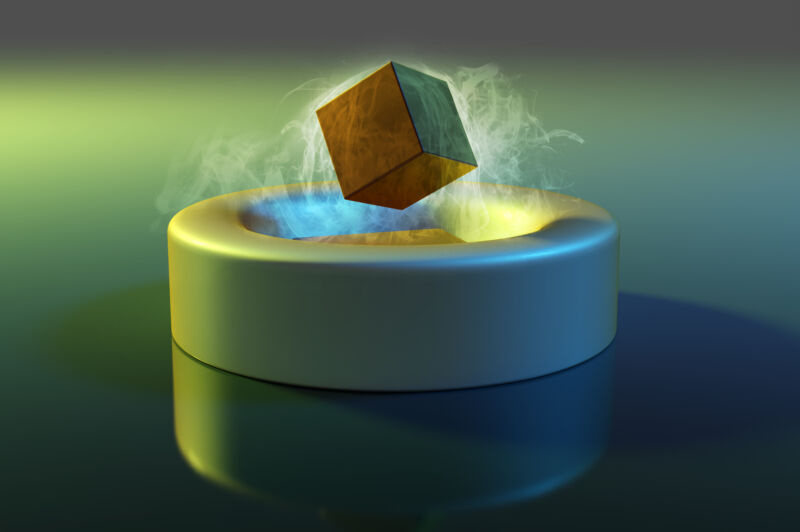

Room-temperature superconducting claim is retracted
source link: https://arstechnica.com/science/2022/09/room-temperature-superconducting-claim-is-retracted/
Go to the source link to view the article. You can view the picture content, updated content and better typesetting reading experience. If the link is broken, please click the button below to view the snapshot at that time.
Get out —
Room-temperature superconducting claim is retracted
The problem appears to be some data that's not being shared.
John Timmer - 9/29/2022, 8:22 PM

A paper that claimed to provide the first evidence of superconductivity at room temperatures has been retracted by the journal Nature, even as the paper's authors say they still have confidence in the results. The decision appears to come down to an issue of the experiment's questionable controls.
High-temperature superconductivity has made a lot of progress due to the use of hydrogen-rich chemicals at extreme pressures, which can force the hydrogen into chemical structures that would otherwise have empty space. Several papers have gotten hydrogen-rich chemicals to superconduct at temperatures that could be reached using dry ice.
The room-temperature report followed a similar path, using intense pressure to force hydrogen to combine with a new mix of chemicals and reach record temperatures—in this case, above the freezing point of water, a major milestone. The pressures involved mean the material wouldn't be useful for real-world applications but could potentially point the way toward other chemicals that could.
AdvertisementBut people in the field raised some questions about how the data obtained during this work was processed before being put in the paper—primarily related to how the background noise seen in the control samples was handled. Nature's editors indicate the procedure used for data processing wasn't included in the paper, which "undermines confidence" in the results.
The research team disagrees strongly, saying the raw, unprocessed data also supports their original conclusions. They feel the paper should not have been retracted.
Normally, this is something replication should be able to sort out. But a report by Science's news team says that the original paper didn't have enough details to make replication a simple matter. And the team behind the publication is suggesting that anyone who wants to replicate its work should visit their labs in order to perform the work—which is not how replication is expected to operate. So it could be a while before we know whether this high-temperature superconductor is for real.
Promoted Comments
-
"the original paper didn't have enough details to make replication a simple matter." This is something that should have been addressed during peer review, but all too often isn't.
I'm an academic, and I try to take peer review seriously. I feel my duty isn't to the authors (no matter how hard they've worked), nor to the journal, but to the eventual readers. Unfortunately, other than feeling good about myself, I get no benefit from spending the couple of days it takes me to do a really thorough review, and l feel bad about recommending rejecting a paper without properly reading, so the temptation is to let things through too easily. One of the many problems with peer review...
Recommend
About Joyk
Aggregate valuable and interesting links.
Joyk means Joy of geeK